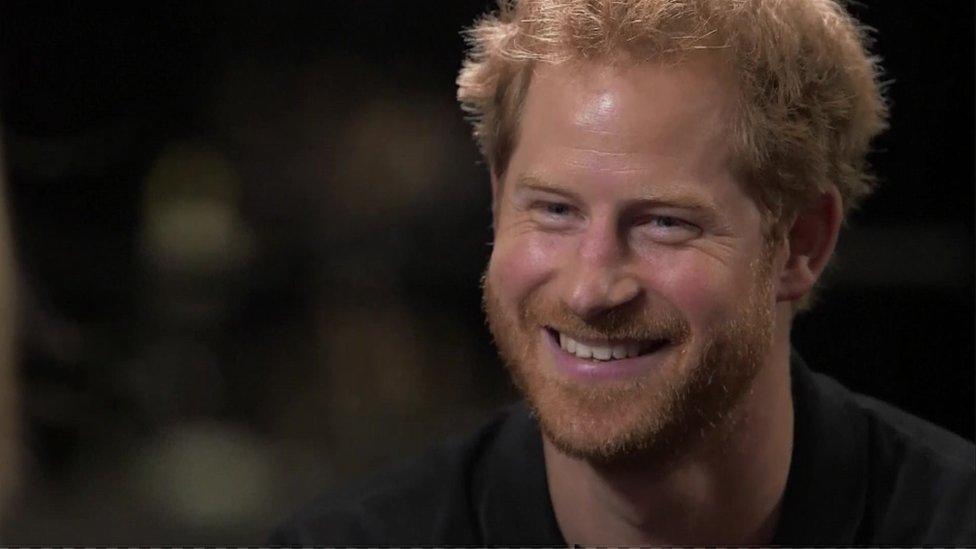Prince Harry 'regrets not speaking about Princess Diana's death'
- Published
Prince Harry: "It's okay to suffer as long as you talk about it - it's not a weakness"
Prince Harry has spoken of his regret that he did not talk about how the death of his mother, Princess Diana, affected him until three years ago.
The Princess of Wales was killed in a car crash in 1997, when he was just 12.
Prince Harry, 31, was speaking as he hosted an event for the mental health charity, Heads Together, which was attended by a number of sports stars.
He told the BBC the event was an opportunity to highlight that anyone can suffer from mental health issues.
Footballer Rio Ferdinand, athletes Dame Kelly Holmes and Iwan Thomas, and cyclist Victoria Pendleton - some of whom have spoken publicly about dealing with depression - were at the event.
Prince Harry formed Heads Together with the Duke and Duchess of Cambridge to bring together leading mental health charities.
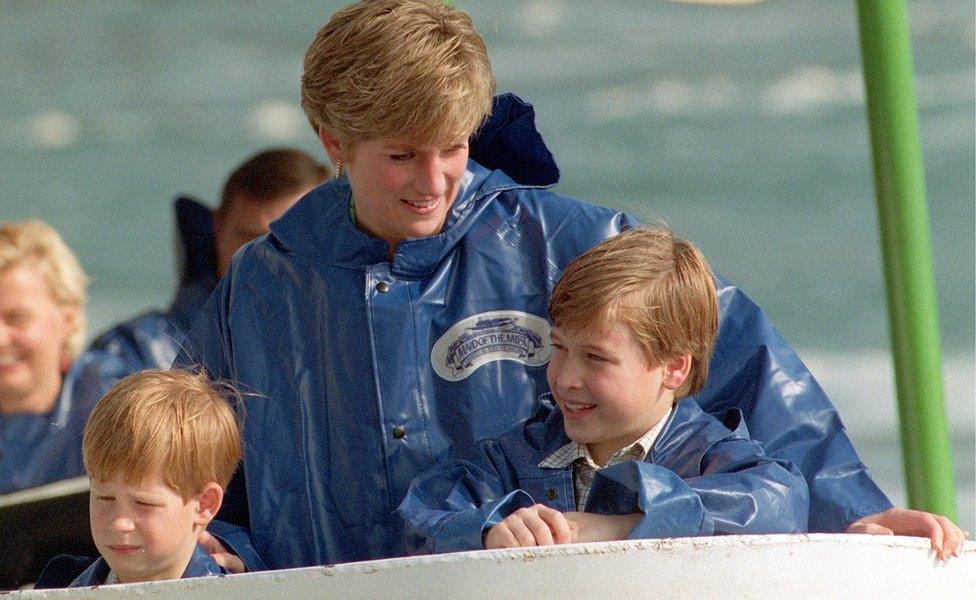
Princess Diana with Prince William (right) and Prince Harry in 1991
The prince told BBC Breakfast: "It is OK to suffer, but as long as you talk about it. It is not a weakness. Weakness is having a problem and not recognising it and not solving that problem."
He said the event was an opportunity to show that "unflappable" sporting personalities can suffer from mental health problems like everyone else, including members of the Royal Family.
"A lot of people think if you've got a job, if you've got financial security, if you've got a family, you've got a house, all that sort of stuff, everyone seems to think that is all you need and you are absolutely fine to deal with stuff," he said.
Prince Harry: "Everyone can suffer from mental health issues"
Prince Harry made his comments about his mother's death as he talked to Ferdinand, saying: "You know, I really regret not ever talking about it."
Father-of-three Ferdinand - whose wife Rebecca Ellison died from cancer last year - also spoke to the prince about dealing with the death of a parent.
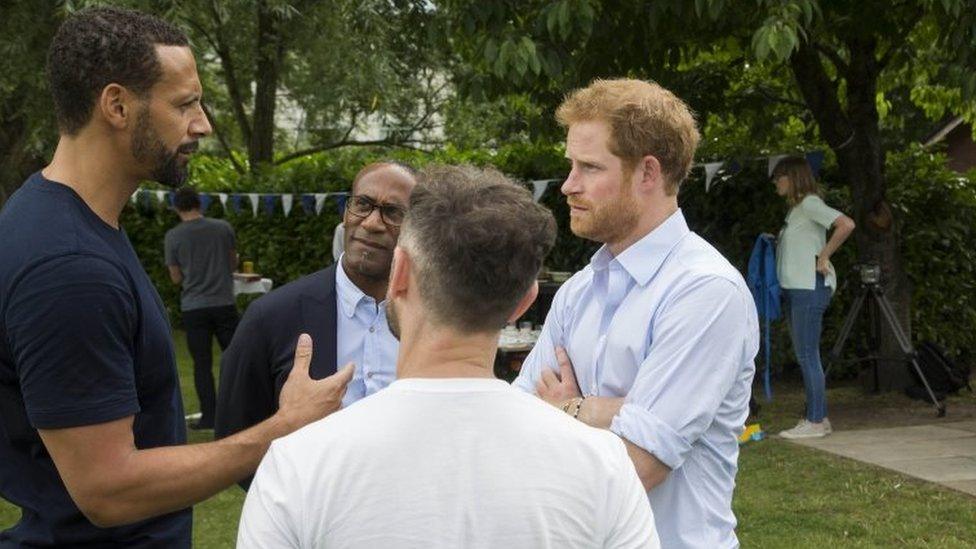
Prince Harry talking to Rio Ferdinand, left
The former England and Manchester United footballer said: "He's gone through different stages in his life that my kids are going to be going towards.
"So to get some of his experiences is very rewarding for me and very educational in many ways."
Prince Harry told the BBC: "It is very easy for someone to look at someone like Rio Ferdinand and say, 'You get paid all the money in the world, you are a successful footballer, you have fast cars.' But at the end of the day his wife was snatched from him at an early stage of his life with her.
"So of course he is going to suffer, it doesn't matter if he has an amazing job."
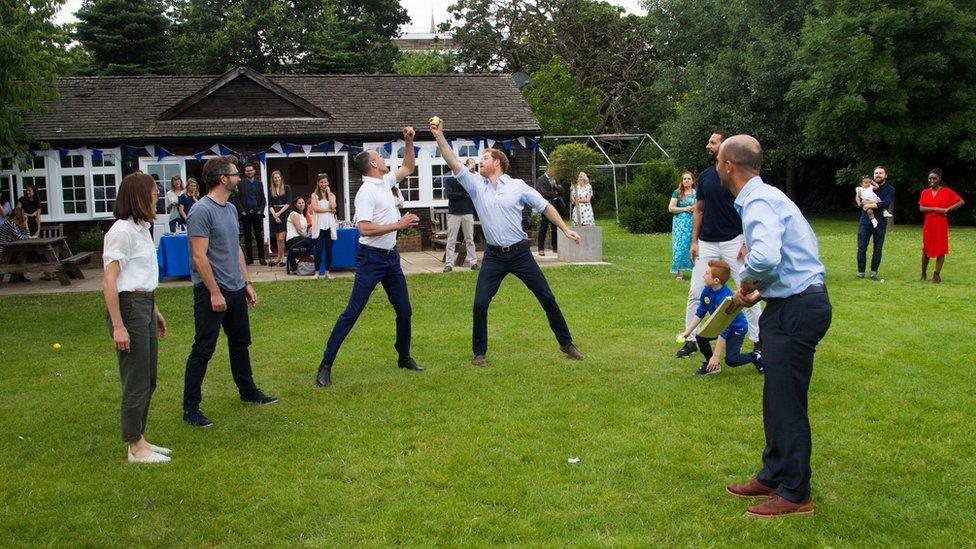
The prince and some of those attending the barbecue played French cricket
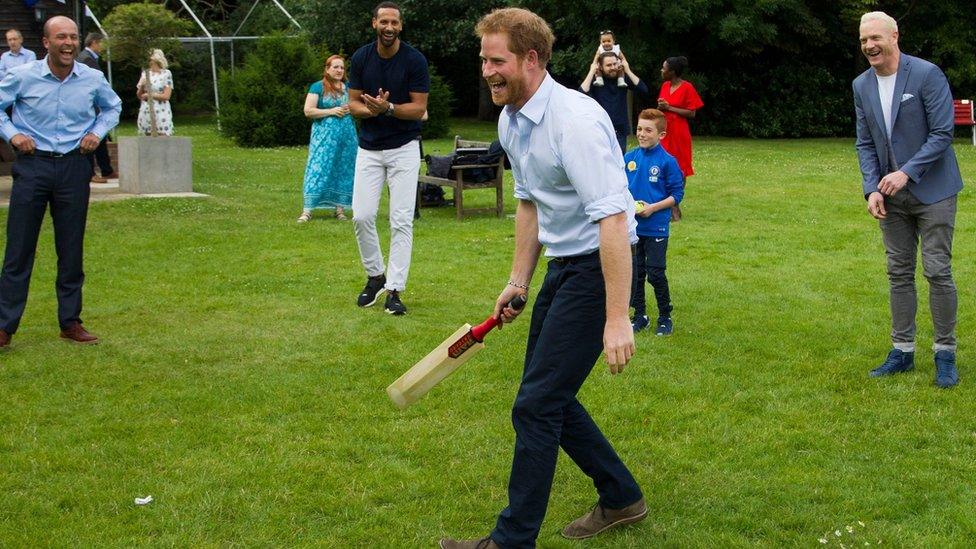
Harry discussed the issue of depression and mental health with some of those at the barbecue
Former European sprint champion Thomas told the prince how he suffered when his career was cut short by injury.
He said: "I think yes, depression definitely. I didn't have one injury that was suddenly like 'you have to retire tomorrow' that almost might have been easier - being dealt a really bad blow."
And Harry also spoke to Dame Kelly, who told him of the mental issues she fought after suffering injuries before the 2004 Olympics, where she won gold in the 800 metres and 1,500 metres.
She said: "I had depression going through my athletics career, no-one knew at all what I was going through. I was having treatment and they thought I was crying because the treatment was so hard.
"It's really been the last three or four years that I've been more open."

Useful links
Young minds, external - young people's mental health and wellbeing
SANE, external - mental health charity
Winston's wish, external - childhood bereavement charity
Cruse, external - bereavement care
Bereavement advice centre, external
Child bereavement UK, external - supporting families, educating professionals
Samaritans, external - 24/7 support
The Compassionate Friends, external - for those suffering the loss of a child
Sands, external - for those affected by the loss of a baby
Grief Encounter , external- for children and families
WAY , external- Widowed and Young
SAMM , external- Support after murder or manslaughter
- Published9 May 2016
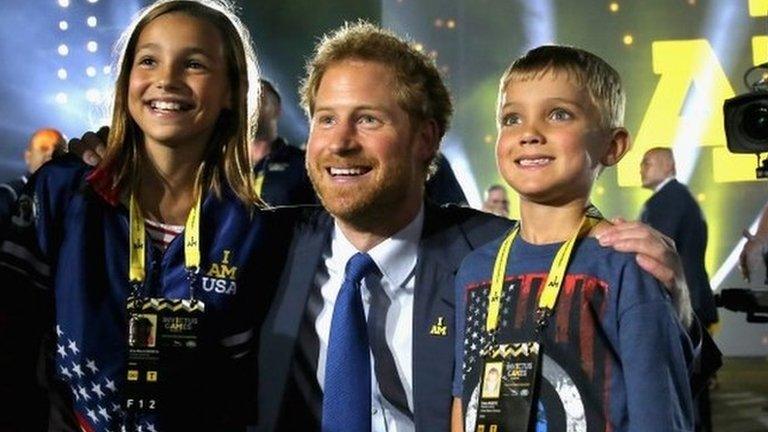
- Published8 May 2016
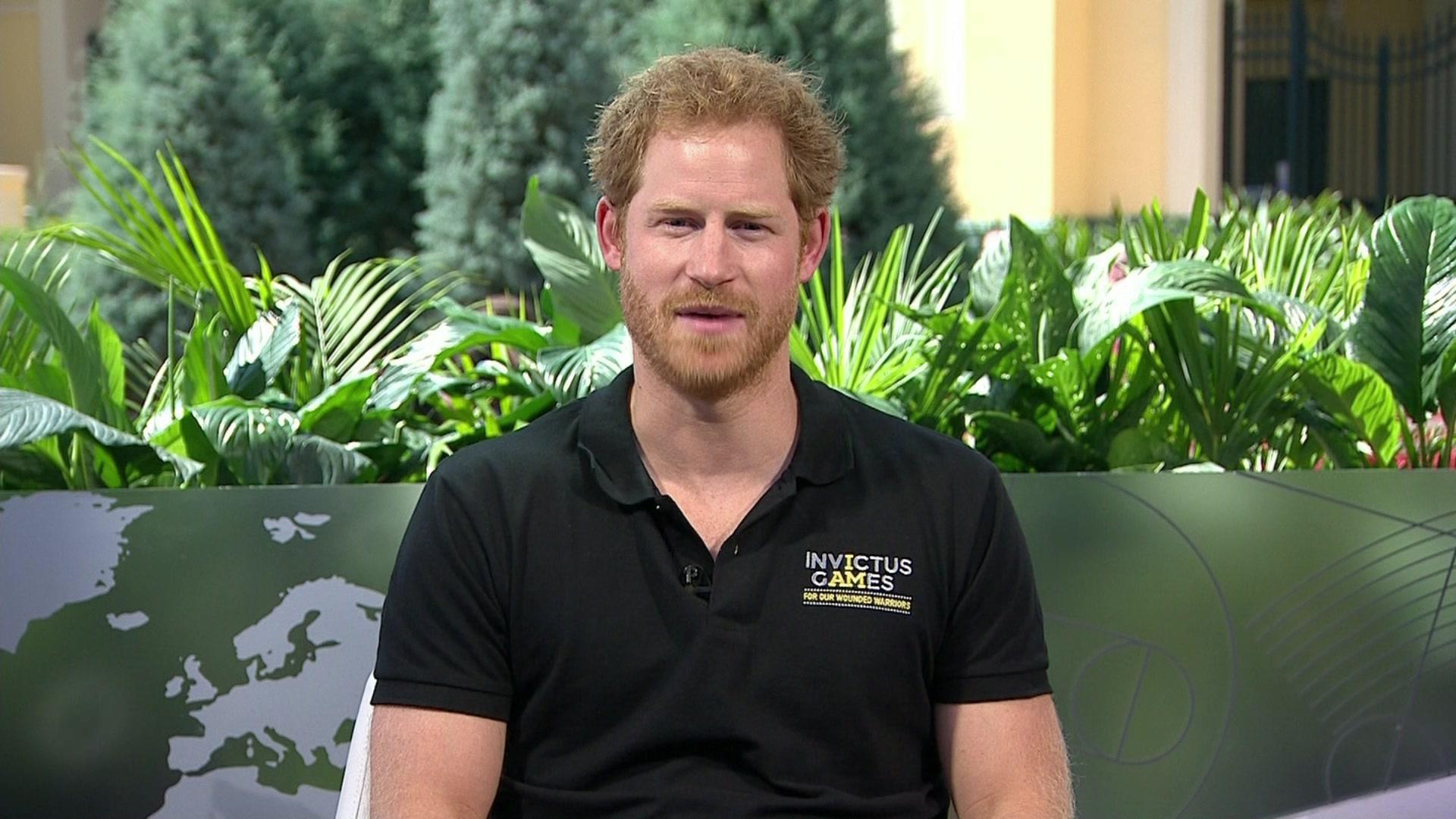
- Published7 May 2016
